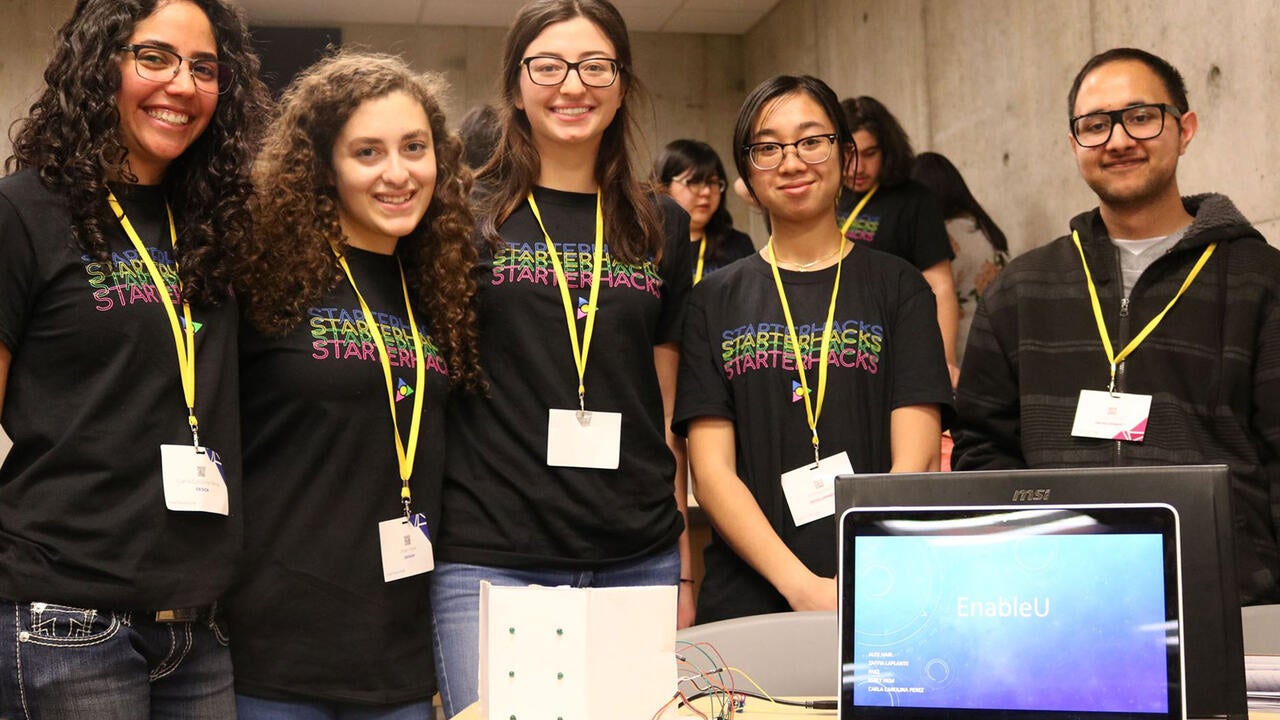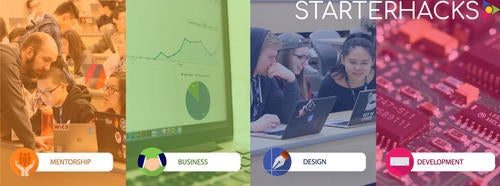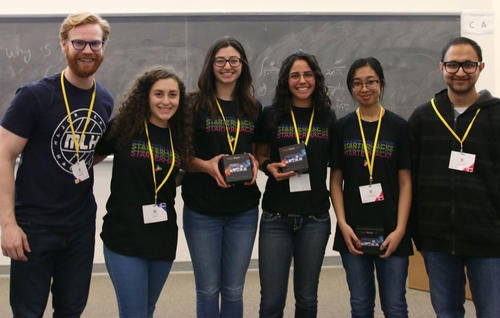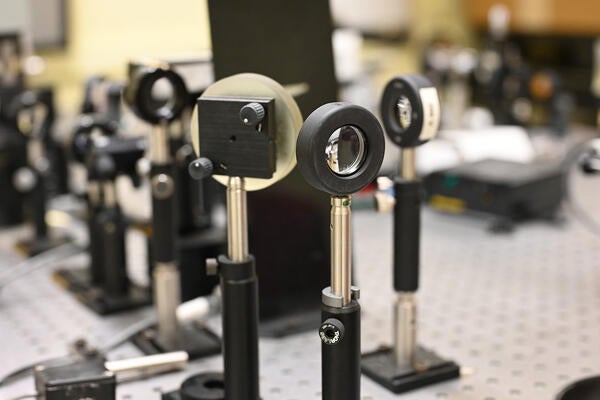
First-time hackers create award-winning prototype
New student technology hopes to fuse gap between public transportation and accessibility.

New student technology hopes to fuse gap between public transportation and accessibility.
By EnableU
A combined effort between team members of two neighbouring universities produced a successful outcome at the latest StarterHacks competition in March, an event that allows first-time hackers to turn a plan into prototype in just 24-hours.
The team, comprised of three University of Waterloo students (Alexandra Haik, Carla Carolina Perez and Emily Hem) and two Wilfrid Laurier University students (Zaffia Laplante and Faiq Ahmed), took home a Major League Hacking certified award for “Best IoT Hack Using a Qualcomm Device,” an honour that recognized the team’s efforts to address the gap between accessibility and transportation. While the exact details of the project are still confidential, the prototype would operate through a tactile system prompting riders with auditory and visual impairments to read current and upcoming transit stops, further allowing them to effectively reach their destination.
“I had this idea about two years ago and I didn’t think anything of it,” said team member Alex Haik, a second-year Global Business and Digital Arts student at the University of Waterloo. “But in three days, it had gone from just an idea to reality. I am so lucky I had the opportunity to participate in StarterHacks and work with my incredible teammates, mentors and professionals.”

Founded and led by recent graduates of the University of Waterloo Marium Kirmani and William Nippard, StarterHacks provides beginner hackers with a safe space to learn and collaborate with other students from various backgrounds. Over 1,500 students applied from high schools and universities around the world, with 600 participants taking part in final the event.
“This team really embodies so much of what Will and I hoped for when creating StarterHacks," said Kirmani. "We have and continue to strive to give hackers the best experience possible as they begin their hackathon journeys. StarterHacks really prides ourselves in our diversity, particularly our gender diversity having about 50 per cent female identifying participants the past two years, so we are also thrilled to see an awesome female-majority team achieving this level of success and continuing to build their project!”
This year, team collaboration, idea testing, design and pitch workshops revolved around five key themes: building community, commerce, environment, everyday things and social impact. Breakout sessions on current issues and trends in the world of technology were also provided. Some events included a panel on women in tech, a session on augmented and virtual reality, introduction to game design and development, Blockchain, and rapid prototyping.
“When Alex told me [her prototype concept], I knew it was an amazing idea but really difficult to achieve with such limited resources since we’re only students,” said team member and second-year Global Business and Digital Arts International student Carla Carolina Perez. “But, after participating in StarterHacks and working in collaboration with students from other disciplines, I really understood what they mean by ‘sky’s the limit’. With perseverance, hard work and faith, anything is possible.”
The event was co-sponsored by the University of Waterloo, Deloitte Digital, Mackenzie Investments, Google, as well as a handful of start-ups and accelerator hubs from the Kitchener/Waterloo area.
Haik’s team is eager to continue working together and hope their technology will one day improve the life of millions living with visual and hearing impairments.
Anyone interested in learning more, can contact team lead Alexandra Haik.

Read more
Laura Zizzo, co-founder of Manifest Climate, helps organizations navigate and plan for climate risk and mitigation

Read more
Non-invasive and accessible testing can detect symptoms of Alzheimer’s disease long before symptoms occur

Read more
President of Waterloo EDC says the University of Waterloo plays a pivotal role in region’s economic development on the global stage
The University of Waterloo acknowledges that much of our work takes place on the traditional territory of the Neutral, Anishinaabeg and Haudenosaunee peoples. Our main campus is situated on the Haldimand Tract, the land granted to the Six Nations that includes six miles on each side of the Grand River. Our active work toward reconciliation takes place across our campuses through research, learning, teaching, and community building, and is co-ordinated within the Office of Indigenous Relations.